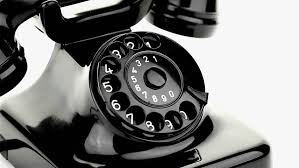Calling Anne Frank
When I visited the bank, the assistant manager suggested that I call Anne Frank. I was at the bank to transfer donated funds to the American Friends of the Anne Frank House, the nonprofit organization for which I serve as treasurer. The assistant manager asked me a question for which I didn’t have ready information, looked at the account name and said, a bit too innocently, “Can you call Anne Frank?”
A rush of emotions arose – sadness, anger and frustration. I calmly tried to correct the misperception. I told her that Anne Frank died in the Holocaust and the account was for a museum in Anne Frank’s honor that is one of Europe’s most visited sites. The bank manager responded, “I’m not very interested in history.” I sunk into my chair in despair.
Such ignorance is beyond unacceptable: it is dangerous. George Santayana famously wrote that “those who do not remember the past are condemned to repeat it.” I fear Santayana didn’t go far enough. Failure to remember the past can be an existential threat to the collective future, especially when we don’t care or even refuse to remember. This kind of ignorance is perilously close to willful.
Willful ignorance makes an unwitting accessory – bluntly, a sin. The Torah portion opening the book of Vayikra (Leviticus), read this week leading to the Shabbat of March 31, 2017 (remember that date), describes a sin offering for one who unwittingly incurs guilt: “When one unwittingly incurs guilt in regard to any of God’s commands about things not to be done, and does one of them,” an offering is made to atone (Lev. 4:2).
The unwitting sin begins with not knowing. The paradox and challenge are that we don’t know what we don’t know. If at least we care to know and try to find out – if we open to history so we don’t re-live it – then we have a chance to right history’s wrongs. But for one who says “I’m not very interested in history” and lives that way, there can be no atonement.
Ignorance, and especially willful ignorance, therefore are the threats we must address head-on. Not knowing is perhaps the greatest sin of this decade if not this century. Information is more available now than anytime in history, but ongoing hatred against minorities, attacks on society’s fabric, disinformation and worse all hide in plain sight before those who aren’t “very interested in history.” Not knowing sows inaction or improper action, incurring guilt about things not to be done. “I don’t know” and “I don’t care” cover the failure to act and make unwitting accomplices in hatred, xenophobia, violence, deprivation and more.
That is why we must redouble our commitment to educate ourselves, our youth and our communities. Of all people, we should know how and why this task lies on our shoulders. That’s why we build museums, fund education programs and do all we can to combat this sort of ignorance. I was grateful to visit the new Museum of African American History and Culture, which vividly tells the story of slavery, oppression and segregation. Attendance at the Anne Frank House in Amsterdam increases each year and now tops one million visitors annually. Museums are just a start to addressing ignorance and unwitting sin. Sara Bloomfield, Director of the U.S. Holocaust Memorial Museum, recently lamented that while a million students visit each year, few have any prior knowledge of its importance. And despite millions of student visitors, nearly all sit idly by while genocides continue around the globe. They don’t know that history lives today.
Anne Frank’s official date of death is March 31, 1945, corresponding this year to the week when we read in Torah about unwittingly incurring guilt. After my bank visit, my inclination is to buy a box full of Anne Frank’s diaries and hand them out each time someone doesn’t recognize her name or tells me that they’re “not very interested in history.”
What will you do?
R’ Evan J. Krame






 Evan J. Krame was ordained as a rabbi by the
Evan J. Krame was ordained as a rabbi by the